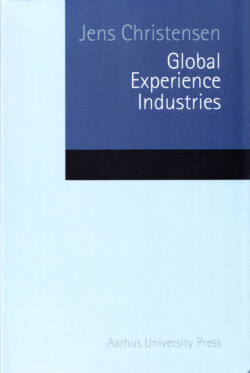Читать книгу Global Experience Industries - Jens Christensen - Страница 33
На сайте Литреса книга снята с продажи.
Social Travel Networking
ОглавлениеSo, online you can access one of the big travel agencies such as Expedia, Travelocity and Orbitz for airfare, hotel and car rental, etc. But innovation and competition do not stop there. A whole new set of travel websites and services have emerged within recent years.48 One response is to pull data from a variety of sources enabling you to compare airfares, hotel prices, etc.
Kayak.com is such an aggregator of travel information, finding the perfect flight, hotel, cruise, or rental car.49 Once the choice is made, the consumer is linked to the travel sites to make his purchase at will. Unlike online travel agencies, Kayak is not a store and does not sell anything. It just searches for travel goods across the Web and provides details on hundreds of options without any hidden agenda or biased displays. And the information is free to use. Kayak was started in 2004 by the founders of Orbitz, Travelocity and Expedia, the three worldwide leading online travel agencies, who wanted to create a better and more user-oriented online travel service. Kayak makes money when travelers click on its advertisements and on the results from travel suppliers such as airlines, hotels and rental car companies. This is a revenue model similar to Google and Yahoo. Yahoo and Google have developed aggregate travel services, too, and form tough competitors to Kayak in the rising industry of aggregate travel information that also includes SideStep and Farecast. This industry of consolidated travel information and supplier links is directly challenging the online agencies.
A different source of innovation and competition to online travel agencies springs from the rapid rise of virtual communities on the Internet. Since 2007, some few hundred million users have joined large communities such as YouTube, MySpace and Facebook.50 The success of these communities quickly caught the interest of leading media and online companies. In 2006, the media conglomerate News Corp. acquired MySpace and Google bought YouTube. In 2007, Microsoft followed suit and invested in Facebook. These three broad community sites function as widely-used communication forums for the new Internet generation. By way of expensive advertisement deals, the leading search engines of Google, Yahoo and Microsoft make sure that they have access to a worldwide audience through three communities.
Soon people with like interests began to divert into specialized sites. Some of these sites deal with traveling. Travelers meet on the Internet to share information on destinations, means of transportation, hotels, etc. in several sites. TripAdvisor is perhaps the largest travel community in the world, attracting more than 30 million monthly visitors.51 What TripAdvisor does is to provide travel information by creating a web service open for travelers, but does not take reservations. It is a free travel guide that offers reviews and information to help plan a vacation.
TripAdvisor is an example of a new and growing trend of consumer generated media and recommendations that are shown to have a big impact on buyer choices. Just as the general communities of YouTube, MySpace and Facebook caught the interest of leading search engine providers and led to mergers, so the challenged group of online agencies has moved quickly to become part of these new developments. Accordingly Expedia has taken over the ownership of TripAdvisor.52 Travelocity and Orbitz are moving in the same direction, offering a new social networking component with realtime updates and tips from travelers. Professionals also offer reviewing of hotels and restaurants in a particular site.53 Some sites combine user-generated reviews, meta-search capabilities and social networking (inter alia TripAdvisor, Kayak plus Facebook) for personalized hotel recommendations and booking at best prices, such as VibeAgent.com.
Generally speaking there is on the one hand a trend towards one-stop shop for travel information of almost any kind and on the other hand, this is increasingly based on consumer input and dialog. Service upgrading by offering total travel plans in one itinerary is also seen. It is all a matter of making it easier for the consumer, informing the consumer better, and making the consumer wishes come true. Finally, new sites and online travel agencies including consumer recommendations seek to match different travel personalities with best destinations. Travelers take a test and are classified into one of six travel personalities, ranging from ‘ventures’ who take extreme risks to ‘authentics’ who want a relaxing vacation.54
